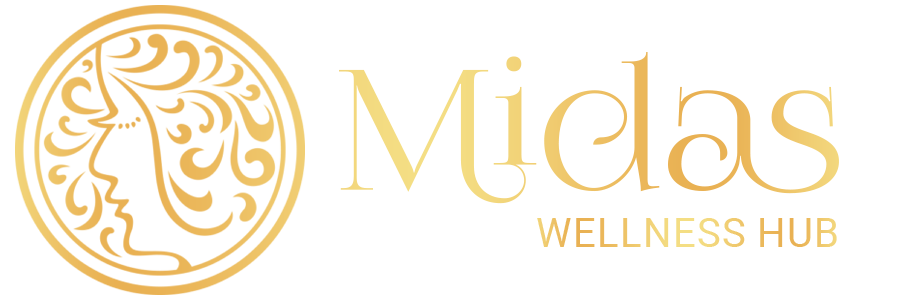
Chai–Sutta: The Everyday Combo That Silently Affects Your Health

Chai–Sutta: The Everyday Combo That Silently Affects Your Health
For millions of people across India, mornings begin with one comforting ritual, a hot cup of chai and a sutta (cigarette). Whether shared among friends, during office breaks, or while commuting, this combination has become a cultural norm and a form of stress relief. It’s often seen as a harmless indulgence or a quick pick-me-up that helps one feel calm and focused. But beneath this temporary comfort lies a pattern that silently impacts the body, hormones, and long-term health.
At Midas Wellness Hub, where holistic and functional medicine approaches meet modern science, we believe every small daily habit contributes to your overall health journey. While a single cup of tea or an occasional cigarette might seem insignificant, the daily chai–sutta combination can cause deep internal imbalances, physically, emotionally, and biochemically.
This article explores how the chai–sutta pairing affects the body, why it’s more harmful than most people realize, and how functional medicine and diet can help repair the damage and restore balance.
Understanding the Chai–Sutta Habit

The chai sutta combination is deeply psychological. The caffeine from tea and nicotine from cigarettes both act as stimulants, offering an instant sense of alertness, relaxation, or pleasure. For many, this becomes a coping mechanism for stress, fatigue, or emotional tension. Over time, however, the body becomes dependent on this external stimulation, and the balance of hormones, neurotransmitters, and digestive health begins to deteriorate.
The Dual Impact: What Happens Inside the Body
1. Nervous System Overstimulation
Nicotine and caffeine both act on the central nervous system. Nicotine quickly enters the bloodstream and triggers the release of dopamine, the “feel-good” chemical, which explains the temporary sense of calm after a cigarette. Caffeine, on the other hand, blocks adenosine receptors in the brain, reducing fatigue and increasing alertness.
When combined, this chai–sutta habit creates an artificial high, overstimulating the body’s stress response. Over time, it leads to elevated levels of cortisol and adrenaline, resulting in irritability, anxiety, insomnia, and a chronic sense of restlessness. The body begins to rely on these chemicals for basic functioning, leading to fatigue and brain fog when the effect wears off.
2. Digestive Disturbances and Nutrient Deficiency
Strong tea contains tannins, compounds that inhibit the absorption of essential minerals like iron and zinc. Cigarette smoke, meanwhile, depletes vitamin C and several B vitamins critical for energy and nerve function. Together, this combination reduces the body’s ability to absorb nutrients from food.
Many habitual chai–sutta users experience bloating, acid reflux, or constipation without realizing the connection. Nicotine reduces blood flow to the digestive tract, slowing metabolism, while caffeine increases stomach acid production. The gut microbiome, essential for immunity, mood, and metabolism, becomes imbalanced, leading to inflammation and poor nutrient assimilation.
Over time, this can result in fatigue, low immunity, dull skin, and even hormonal imbalances, since gut health and hormones are deeply interlinked.
3. The Impact on Heart and Lung Health
Both chai and cigarettes independently affect the cardiovascular system, but together, they multiply the risk. Nicotine constricts blood vessels, reducing oxygen flow and increasing blood pressure. Caffeine also temporarily elevates heart rate and pressure. For someone who starts their day with chai and sutta, this causes a repetitive stress load on the heart.
Smoking introduces thousands of toxins, including carbon monoxide, which decreases oxygen supply to the body’s tissues. Meanwhile, the dehydration caused by caffeine thickens the blood, making it harder for the heart to pump efficiently. This long-term strain increases the risk of hypertension, atherosclerosis, and cardiac fatigue, conditions that often go unnoticed until much later in life.
4. Skin, Aging, and Cellular Health
The effects of chai–sutta extend beyond the internal organs. Smoking accelerates the breakdown of collagen and elastin, the structural proteins that keep the skin firm and youthful. It also narrows capillaries, depriving the skin of oxygen and nutrients. The result is dull, uneven, prematurely aging skin.
Caffeine, when consumed excessively, contributes to dehydration, which further emphasizes fine lines and dryness. Together, these two habits speed up oxidative damage, reduce cellular regeneration, and make the skin appear older than it is.
At Midas Wellness Hub, we often remind our patients that skin reflects internal health. The glow people often seek through facials or skincare routines truly begins with restoring cellular balance from within.
5. Hormonal and Emotional Imbalances
Nicotine and caffeine both alter neurotransmitter function, especially dopamine, serotonin, and adrenaline. These chemicals influence mood, motivation, and mental clarity. When used regularly, they disrupt the body’s natural hormone rhythms, leading to mood swings, low energy, and irregular sleep cycles.
Nicotine also interferes with insulin sensitivity and cortisol balance, both of which affect fat metabolism and weight. It’s common for long-term smokers to struggle with stubborn fat, especially around the abdomen, due to this hormonal dysregulation.
Functional medicine views this imbalance as a sign that the body’s “communication system” is out of tune. Healing begins not just by removing triggers but by restoring balance through nutrition, detoxification, and lifestyle correction.
How Diet Can Help Reverse the Damage
The good news is that the body has an incredible ability to heal when given the right nutrients and environment. A well-designed diet can reverse many of the biochemical imbalances caused by chai–sutta over time.
1. Focus on Antioxidants
Nicotine and caffeine both increase oxidative stress, an excess of free radicals that damage cells. A diet rich in antioxidants helps neutralize these harmful compounds. Include fruits like amla, oranges, and berries, and vegetables such as spinach, beetroot, and broccoli. Turmeric with black pepper, green leafy vegetables, and herbs like tulsi are natural anti-inflammatory agents that support detoxification.
2. Rebuild Lost Nutrients
Since smoking depletes Vitamin C and B-complex vitamins, and tea interferes with iron absorption, it’s crucial to rebuild these nutrients. Add citrus fruits, sprouts, whole grains, eggs, and legumes to your meals. Consuming Vitamin C-rich foods with iron sources (like lemon with lentils) enhances absorption.
3. Support the Liver and Lungs
The liver plays a central role in detoxifying the chemicals from cigarettes and caffeine. Include foods like garlic, onions, coriander, and cruciferous vegetables (broccoli, cabbage, cauliflower) that promote liver enzyme activity. Hydration is equally important, drink at least two to three liters of water daily to support natural detoxification.
For lung health, consume foods rich in carotenoids and flavonoids, such as carrots, tomatoes, and bell peppers, and practice deep breathing or pranayama to oxygenate tissues.
4. Balance Your Gut Microbiome
To repair gut damage, focus on probiotic and prebiotic foods. Fermented items like curd, kanji, kimchi, or sauerkraut restore healthy bacteria, while high-fiber foods like oats, fruits, and vegetables feed them. Gut health restoration reduces acidity, improves nutrient absorption, and even stabilizes mood.
5. Replace the Habit Gradually
For those trying to break free from chai–sutta, replacement works better than restriction. Start by switching to herbal teas such as chamomile, peppermint, tulsi, or licorice. They calm the nervous system and support the liver. When cigarette cravings strike, deep breathing, water intake, or short walks can help regulate dopamine naturally without nicotine.
The Functional Medicine Perspective

Functional medicine aims to identify the root cause of imbalance rather than simply treating the symptoms. It recognizes that habits like chai, sutta are not just physical addictions but also emotional and biochemical coping mechanisms.
Here’s how functional medicine helps repair the body from this combination’s effects:
1. Detoxification Pathways
Functional medicine supports the body’s natural detox systems, especially the liver, kidneys, and lungs, through a tailored program of nutrients, herbs, and hydration. Supplements like milk thistle, N-acetylcysteine (NAC), and alpha-lipoic acid may be recommended under professional guidance to improve liver function and neutralize toxins.
2. Stress and Dopamine Regulation
Nicotine dependency is often linked to stress or dopamine imbalance. Adaptogenic herbs like ashwagandha, rhodiola, and holy basil help regulate cortisol levels and enhance the body’s resilience to stress. Mindfulness, yoga, and breathwork are also integrated to retrain the brain’s reward system without relying on external stimulants.
3. Gut Restoration
A detailed gut healing protocol may be recommended, involving probiotics, fiber, and anti-inflammatory foods. Functional medicine practitioners often assess gut permeability (“leaky gut”) and microbiome composition, addressing inflammation that may be contributing to fatigue, mood changes, or skin dullness.
4. Hormonal and Sleep Rebalance
Nicotine and caffeine disrupt sleep cycles, leading to poor repair and recovery. Functional medicine emphasizes circadian rhythm support through magnesium-rich foods, evening relaxation routines, and caffeine tapering. Over time, this restores natural energy, improves mood, and helps stabilize hormones.
5. Cellular Repair and Nutrient Optimization
Functional testing can identify deficiencies caused by smoking and caffeine. Targeted supplementation with antioxidants (Vitamin C, E, selenium, zinc) and essential fatty acids (Omega-3s) can help rebuild cellular health. This not only improves internal function but also enhances skin glow, hair strength, and mental clarity.
The Healing Journey: From Habit to Harmony

At Midas Wellness Hub, we understand that habits like chai–sutta are deeply ingrained and often tied to emotion rather than willpower alone. True healing doesn’t come from abrupt restriction but from a gradual shift toward self-awareness, balanced routines, and nourishment.
Replacing chai with calming herbal teas, pairing stress management with mindful breathing, and slowly detoxifying the body with nutrient-rich foods can lead to significant improvements in just a few weeks. Patients often report better digestion, improved focus, clearer skin, and a calmer mood once they start this process.
The Final Word
The chai sutta combination may seem like a harmless ritual, a quick escape from stress or fatigue, but its impact runs much deeper. From damaging the gut and heart to accelerating aging and nutrient loss, it creates a silent imbalance that only surfaces years later.
Functional medicine and a restorative diet together offer a path to undo this damage. By focusing on detoxification, nutrient replenishment, and emotional regulation, the body can gradually restore its natural rhythm, energy, and vitality.
Health is not about giving up what you enjoy, it’s about choosing what helps you thrive. At Midas Wellness Hub, our mission is to help you reconnect with that balance, mind, body, and soul.
